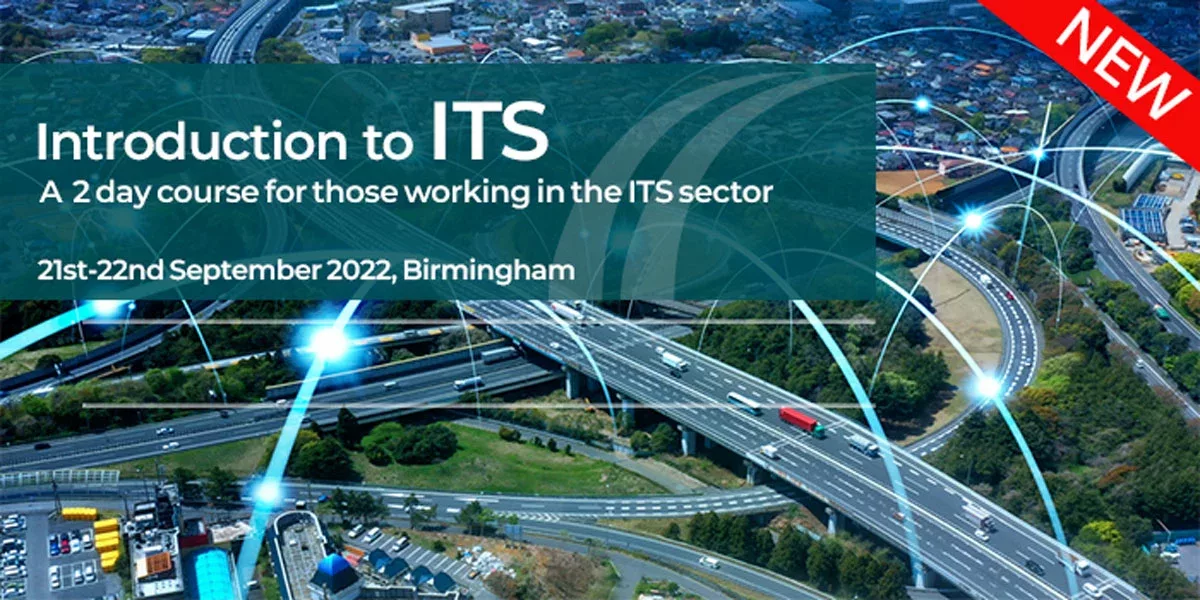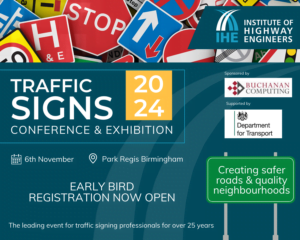The Institute of Highway Engineers is running an Introduction to Intelligent Transport Systems course in September, setting out ITS Principles and Practice.
It says technology now offers new tools to deploy new policy aims for the roads authorities and for professionals working within the Intelligent Transport Systems. Such technology can range from more advanced traffic signals and bus priority, through data from connected vehicles to artificial intelligence and image processing. These are no longer pilots but should now form part of the everyday transport toolkit. Yet often practitioners do not know where to start in deploying them, or what their advantages are.
These technologies are often beyond the skills taught in traditional traffic engineering courses, and so can be challenging for practitioners to understand, procure and deploy. They also require new skills e.g., in data, IT security and user experience that can be provided by other people but where a basic understanding of the principles will help delivery. New transport polices and services are also on the horizon, ranging from highly automated vehicles and road pricing to kerb management that will also need a basic understanding of the ITS principles they are built on.
Hence this 2 day IHE course will introduce ITS and give confidence on principles and practices of deployment
Objectives
- – To have confidence in understanding the concept of ITS and how it fits in your authority
- – To better understand how existing ITS in your authority is used and how to get maximum benefit from it
- – To be able to see benefits for its adoption in your local authority’s traffic systems
- – To know where standards can help and where to look for specialist help, guidance and case studies
- – To be able to explain ITS concepts and business cases in simple language Learning outcomes
- – Knowledge of the role of ITS in current and future transport policy delivery
- – Knowledge of benefits and deployment in past case studies
- – Awareness of how it fits in with other authority business e.g., IT, data, cyber security
- – Knowledge of how to deploy ITS in existing traffic systems with minimal risk
- – Awareness of connected vehicles, open data, AI and new sensing technology Outline: Module Part 1: Introduction to ITS (Day 1 – 4 hours)
- – ITS scope and benefits in delivering policy
- – Delivering ITS in the real world
- – What does the future look like? Sources of information. organisations involved e.g. LCRIG, TTF, … Module Part 2: ITS and Signals (Day 1 – 4 hours)
- – Uses of ITS in signals e.g., new detection, connected vehicles data
- – New forms of bus signal priority e.g., using potentially using the Bus Open Data Service Module Part 3: Data and IT (Day 2 – 4 hours)
- – Open data – understanding what data you (or other departments in your organisation) already have.
- – What data do you need? How can you get it? Is it available as Open Data? What benefits would it bring?
- – Procuring data as a service from commercial providers.
- – Engaging with other stakeholders – compliance with your organisation’s IT, security and privacy policies
- – Platforms, big data and new services eg National Access Point, Street Manager and National Parking Platform Module Part 4: Standards and Specifications (Day 2 – 4 hours)
- – What is a specification and a standard? What sort of standards exist and how are they used?
- – Procurement – referencing standards and achieving compliance (functional purpose)
- – In the detail – how are standards developed, and how should they be used. Testing and compliance.
- – Essentials, options and profiles/ Versioning and configuration management.
The course takes place on 21 and 22 September in Birmingham. Sign up here.
(Picture – IHE)





















